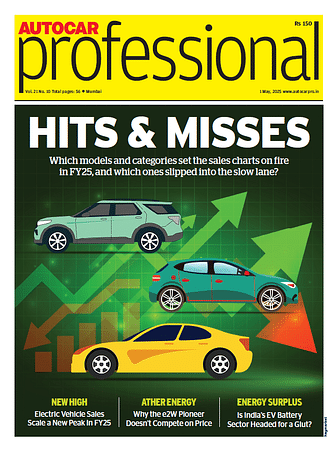GST Council may reconsider steep levy on hybrid cars next week
GST council to reconsider the proposed steep hike of 43 percent tax on hybrid cars after auto industry voice disappointment.
The GST Council is to reconsider the proposed steep hike of 43 percent tax on hybrid cars after the Indian auto industry has voiced its disappointment.
The India government’s think-tank NITI Aayog’s draft proposal for a new mobility policy has a strong tilt towards electric vehicles (EV). The GST tax on hybrids, which is similar to fossil-fueled passenger vehicles (from 30.3 percent to 43 percent) compared to the 12 percent tax on EVs, not surprisingly, did not go down well with automakers.
While most OEMs welcomed the GST rates, there was some apprehension on the high rate of taxation on hybrid vehicles, which are typically seen as a pathway to going full electric. Vinod Dasari, president, Society of Indian Automobile Manufacturers, said, “Differential GST for EVs will also help electric mobility to gain momentum in India. We would have liked to see a similar differential duty on hybrid vehicles to continue.”
Prior to the GST rates being announced, hybrid cars attracted an excise duty of 12.5 percent, similar to entry level small cars, 1 percent national calamity contingency duty, 2 percent sales tax, and 12.5 percent VAT tax, bringing the total tax incidence to 30.3 percent.
The FAME India scheme, which was initiated in April 2015, to support hybrid/electric vehicle market development and a manufacturing eco-system, incentivises consumers to adopt newer cleaner technology.
The hybrid car segment received a far better consumer response compared to EVs. While an estimated 22,000 EVs including 2,000 two-wheelers were sold in India in FY2015-16, demand for hybrids, more specifically mild hybrids, was much higher. Lack of charging infrastructure, high ownership cost and low range of EVs continues to be a deterrent for mass adoption of EVs.
It may be recollected that on April 1, 2017, after 73,633 mild hybrids were sold under the FAME India scheme, the subsidy to mild hybrids were withdrawn.
RELATED ARTICLES
Bajaj Auto launches new Chetak 3503 at Rs 110,000
The Chetak 3503, with a claimed range of 155km, 63kph top speed and a slower charging time than its 35 Series siblings, ...
Hyundai walks the eco talk with biogas plant, material recovery plant in Gurugram
Operational since October 2022, the facility targets sustainable waste management in Gurugram by undertaking scientific ...
Rajiv Bajaj reappointed MD and CEO of Bajaj Auto for five-year term
Bajaj Auto’s Board of Directors has approved the re-appointment of Rajiv Bajaj as the company’s MD and CEO for another f...






 By Autocar Professional Bureau
By Autocar Professional Bureau
 24 May 2017
24 May 2017
 4967 Views
4967 Views









